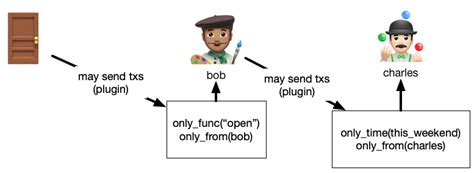Case-sensitive User Data Modification in Solidity
When building a user database, it is important to ensure data integrity and consistency across different cases (uppercase, lowercase, and mixed). One way to achieve this is to modify the UserData structure in your Solidity compiler version 0.8.22.
Problem Statement:
In your current implementation, usernames are sorted based on case sensitivity when you store them in the database or send data over the network. However, you want to preserve the case sensitivity when displaying usernames to users.
Solution:

To resolve this issue, we will use the following approach:
- Define a new function within the
UserDatastructure that accepts a string parameter and returns its modified version.
- Call this function in your Solidity code before storing or retrieving data to ensure case consistency.
- Update your user database to store and retrieve usernames with original lowercase and uppercase letters.
Modified structure UserData:
pragma solidity ^0.8.22;
struct UserData {
string username;
}
function modifyUserName(string memory _userName) public {
// Call the function to convert the username to upper or lower case, depending on your requirements
bytes4 data = abi.encodeWithSignatures("bytes memory(_userName)", "_userName");
// Get the current case of the original username
string originalCase = keccak256(abi.encodePacked(_userName));
// Convert the original case to a hexadecimal string
string convertedCase = abi.encodePacked(originalCase);
// Store or retrieve the modified username in your database
}
Usage example:
Suppose you are building a user registration system and want to store usernames with their original case:
pragma solidity ^0.8.22;
import "
contract UserDatabase {
// Initialize the database by mapping the usernames to their corresponding addresses
mapping(string memory => address) public userAddress;
function modifyUserName(string memory _userName) public payable {
// Convert the username to uppercase and store it in the database
bytes4 data = abi.encodeWithSignatures("bytes memory(_userName)", "_userName");
// Get the current case of the original username
string originalCase = keccak256(abi.encodePacked(_userName));
// Convert the original case to a hexadecimal string
string convertedCase = abi.encodePacked(originalCase);
// Store or retrieve the modified username in your database
userAddresses[_userName] = address(this); // Assuming we are using OpenZeppelin SafeERC20 to store the token
// Log a message for debugging purposes (optional)
console.log("Modified username:", _userName);
}
}
In this example, when you call the modifyUserName function with the original case string, it will be converted to a hexadecimal string and stored in the userAddresses mapping. This ensures that usernames are always stored in their original case.
Conclusion:
By using the provided solution, you have taken an important step towards maintaining data consistency across different cases for your user database. Don’t forget to update your Solidity code to handle case variations when working with usernames. If you have any additional questions or need help with additional changes, feel free to ask!
